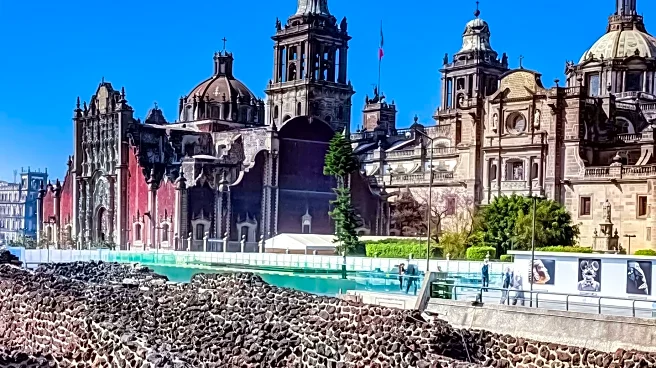What's Happening?
The National Institute of Anthropology and History (INAH) in Mexico City is offering expert-led archaeology tours that allow sightseers to explore ancient ruins in the heart of the city. These tours, crafted by INAH, aim to safeguard Mexico's cultural heritage by restoring damaged monuments and ensuring construction projects do not harm archaeological remains. The tours have become popular among locals and tourists alike, providing insights into Mexico's rich historical past. Participants can visit sites like Cuicuilco, a pre-Hispanic civilization center, and learn from archaeologists about the significance of these ancient locations.
Why It's Important?
These tours play a crucial role in preserving and promoting Mexico's cultural heritage, offering educational opportunities that enhance public understanding of the country's history. By engaging the public in archaeology, INAH helps foster a sense of national pride and cultural identity. The tours also contribute to the local economy by attracting tourists, which supports businesses and creates jobs. Additionally, they provide a platform for archaeologists to share their research, advancing academic knowledge and encouraging further exploration of Mexico's historical sites.
What's Next?
INAH plans to continue offering these tours, with upcoming excursions focusing on Day of the Dead traditions and other cultural events. The institute aims to expand its reach by offering more tours in different locations, potentially increasing international interest in Mexico's archaeological heritage. As the tours gain popularity, INAH may collaborate with travel agencies to enhance the visitor experience and promote Mexico as a top destination for cultural tourism.
Beyond the Headlines
The tours highlight the importance of preserving cultural heritage in urban areas, where development often threatens historical sites. They underscore the need for sustainable tourism practices that balance economic growth with cultural preservation. By showcasing lesser-known sites, INAH encourages a broader appreciation of Mexico's diverse history, which may influence future cultural policies and conservation efforts.










